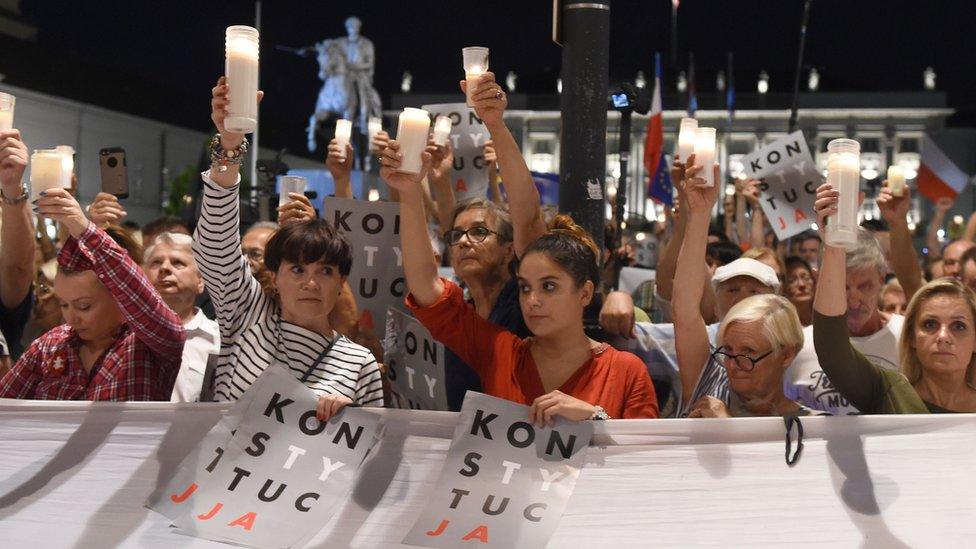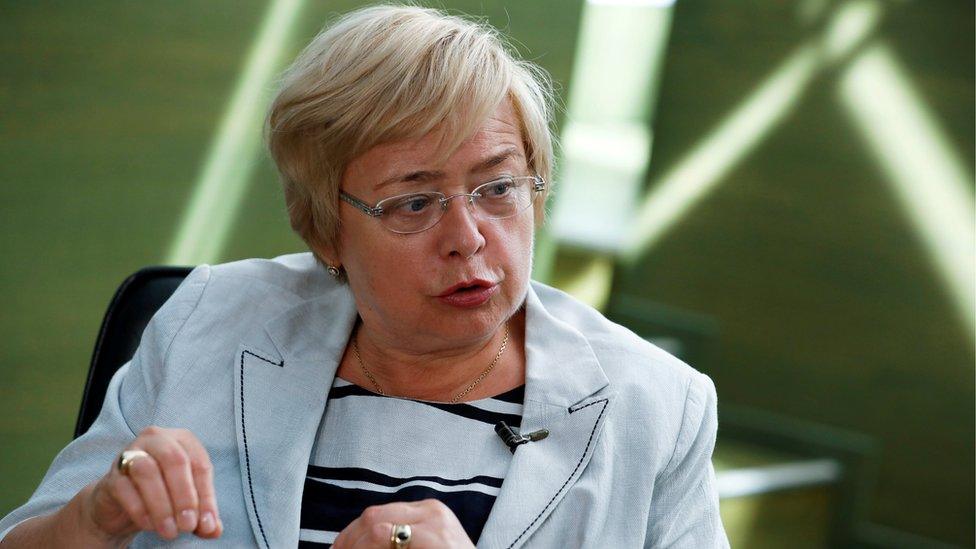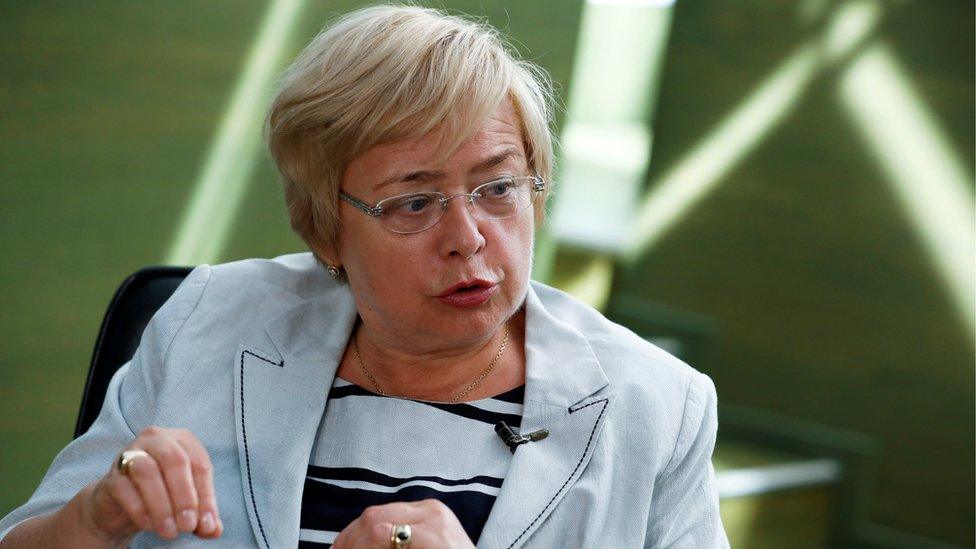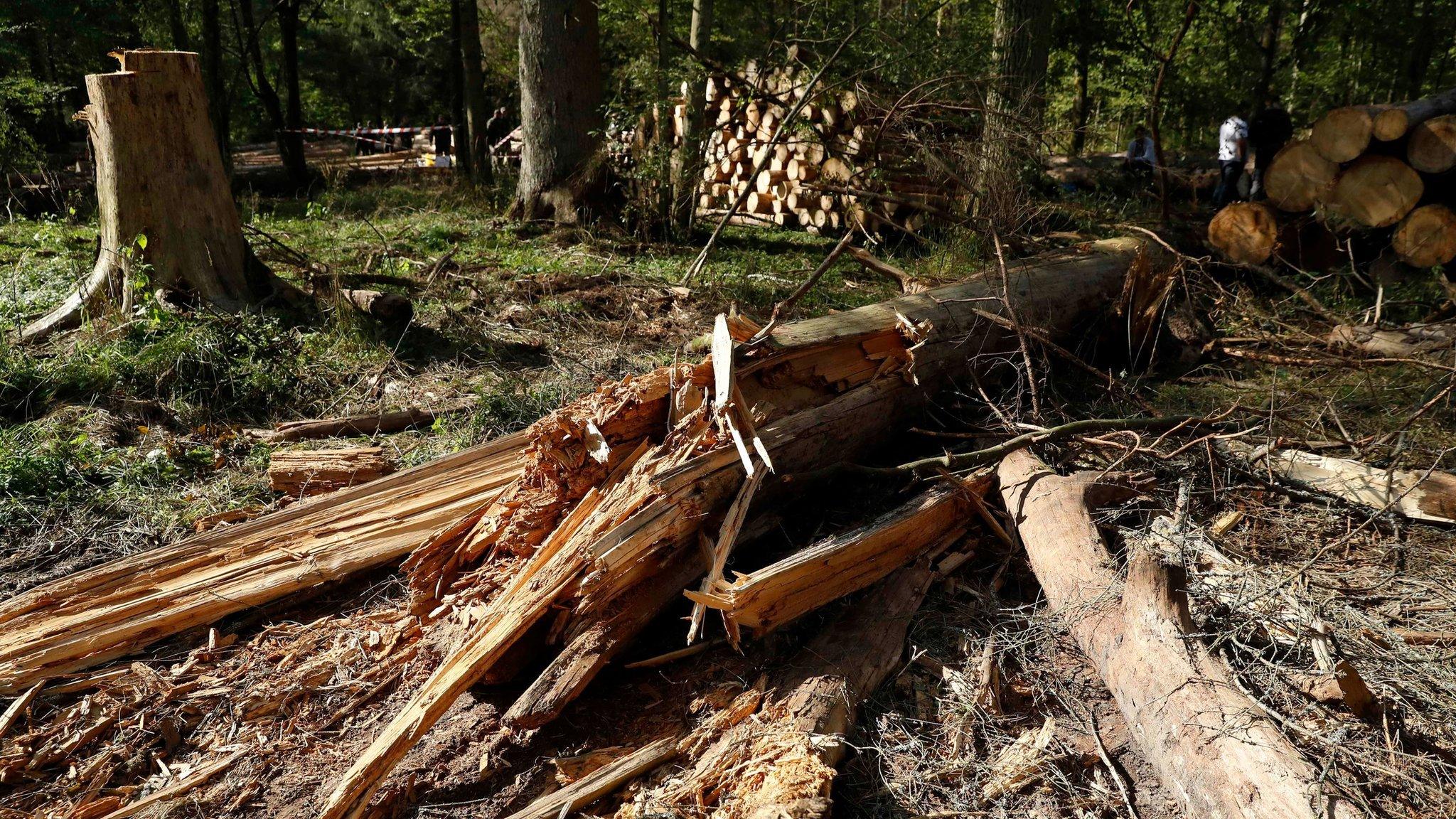EU court orders Poland to halt court retirements law
- Published

The judicial reform triggered mass protests across Poland
The EU's top court has ordered Poland to "immediately suspend" the application of its law which lowers the retirement age of Supreme Court judges.
The European Court of Justice upheld the request by the European Commission and the head of Poland's ruling party said it would comply with the decision.
The Polish government has been accused of trying to appoint loyal judges.
But Warsaw argues the reforms, which lower the retirement age from 70 to 65, make the court more efficient.
Poland has clashed with EU bodies in recent months over a number of issues.
"We are members of the European Union and we will abide by European Union law," said the head of the ruling Law and Justice party (PiS), Jaroslaw Kaczynski, adding that Poland "had the right to appeal".
What did the ECJ ruling say?
The Luxembourg-based court ordered Poland to immediately reinstate the Supreme Court judges who have been forced to retire since the new law came into force in July.
The ECJ said its decision was an interim measure in response to a European Commission request, and a final ruling would be issued at a later date. Poland has yet to make a submission in the case.
Allow X content?
This article contains content provided by X. We ask for your permission before anything is loaded, as they may be using cookies and other technologies. You may want to read X’s cookie policy, external and privacy policy, external before accepting. To view this content choose ‘accept and continue’.
About a third of the judges have stepped down, but Chief Justice Malgorzata Gersdorf - who is also affected by the changes - is refusing to quit, saying the Polish Constitution guarantees her a six-year term.

Head of Poland's Supreme Court Malgorzata Gersdorf has called the new rules a "purge"
Fines could be imposed if Poland is found in breach of EU law.
How did the Polish government react?
The judicial reforms triggered mass street protests across Poland.
Opponents say the governing Law and Justice (PiS) party will use the law to appoint new judges loyal to the authorities.
The BBC's Paul Adams examines the political scene in Poland
The conservative government denies the accusations, saying the country's judiciary was not properly reformed after the end of communism in 1989.
After Friday's order, Prime Minister Mateusz Morawiecki has said "several possibilities will be analysed" - without giving details.

Poland and the EU's tug-of-war
By the BBC's Adam Easton in Warsaw
The European Commission was so alarmed about the law's damage to Poland's judicial independence that it asked the court to impose interim measures before the case has even been heard.
Jaroslaw Kaczynski, widely considered the country's most powerful politician, insisted Poland would exercise its right to appeal.
In fact Poland has no such right to appeal. What it will most likely do is argue that the changes do not contravene EU law, as the European Commission alleges, once the court hears the case.
When the ECJ eventually hears the case, Poland will argue that the changes do not contravene EU law, as the European Commission alleges.
Mr Kaczynski did not make it clear whether the retired judges would be reinstated in the meantime, as the court ordered, or only after the final ruling should it lose.
President Andrzej Duda, a former Law and Justice MP and ally, has appointed 27 new judges to the Supreme Court.
However, they will mostly fill positions in two newly-created Supreme Court chambers, rather than replace the retired judges, which could make it simpler to reinstate the latter.

- Published24 September 2018

- Published20 December 2017

- Published2 July 2018

- Published17 April 2018

- Published7 January 2016
